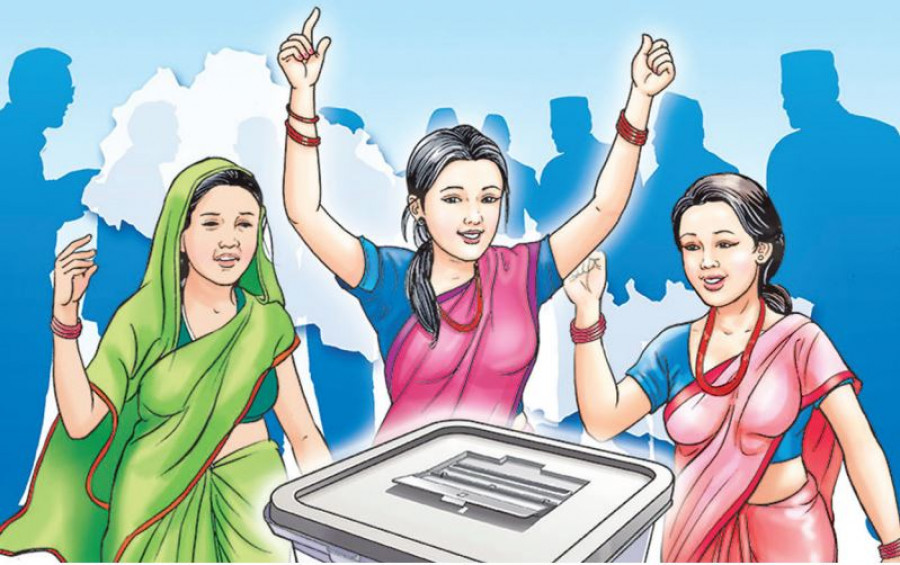Editorial
Women MPs, unite
A new women’s parliamentary caucus is needed at a time when they are being brazenly discriminated.
If one thing has remained unchanged in the history of Nepal’s democratic polity, it is the male-dominated political parties’ deliberate marginalisation of women. Most notably, women’s representation and concerns have been sidelined in the electoral battlefield and in Parliament over the years. The absence of a women's parliamentary caucus—a cross-party group of women members of parliament who support each other—is one glaring outcome of such systematic violation of women’s right to a dignified and adequate representation.
There was such a caucus in the first Constituent Assembly elected in 2008. It helped shape many pro-women agendas. The caucus fought to ensure one-third female representation in the legislative, executive, judiciary and political parties. Additionally, it secured, among other things, women’s election either as mayors or deputy mayors and Dalit women’s representation in ward committees. Most importantly, the caucus laid the foundation for the drafting of an inclusive Constitution of Nepal 2015.
But despite the multiple positive contributions the caucus made, it could not be given continuity after the demise of the first Constituent Assembly in 2013. The power-hungry male political leaders felt uncomfortable with women lawmakers’ growing clout inside the legislature. This played a big role in the downfall of the caucus. Yet there were other issues as well: The mad rush for INGO funds divided women MPs and created needless ego tussles. The kind of solidarity among women MPs seen at the start of the tenure of the first Constituent Assembly evaporated.
The absence of the caucus is reflected in the elections and other important issues concerning women. While women parliamentarians raised their voices to remove the statute of limitations on rape in the case of minors, the bill that was recently passed only increased the time limit. Moreover, tensions are rising as the five-party ruling coalition has used legal loopholes to field far fewer female candidates than they would have been required to do had they gone to the elections as individual parties. Women are also being confined as candidates under the proportional representation category, in the belief that they are incapable of fighting against their “more capable” male peers. All these steps will weaken women’s voices in Parliament and dilute their core agendas.
Even though Article 38 (4) of the constitution states that “Women shall have the right to participate in all bodies of the state on the basis of the principle of proportional inclusion,” women are being denied their rights. Women comprise more than half the country’s population, yet their representation in important state organs is far below that level.
A new women's parliamentary caucus is the need of the hour, especially at a time when they are being brazenly discriminated against, for instance, in the granting of citizenship through the mother’s name. Political parties must encourage women lawmakers to work together and form a caucus in the next Parliament. But to get there, they should first field more women candidates, especially in the direct elections. That would be the wise thing to do. In the long run, only the political forces that give a fair and equitable voice to over half the electorate will thrive. It will be short-sighted not to realise this self-evident truth.




 18.12°C Kathmandu
18.12°C Kathmandu














